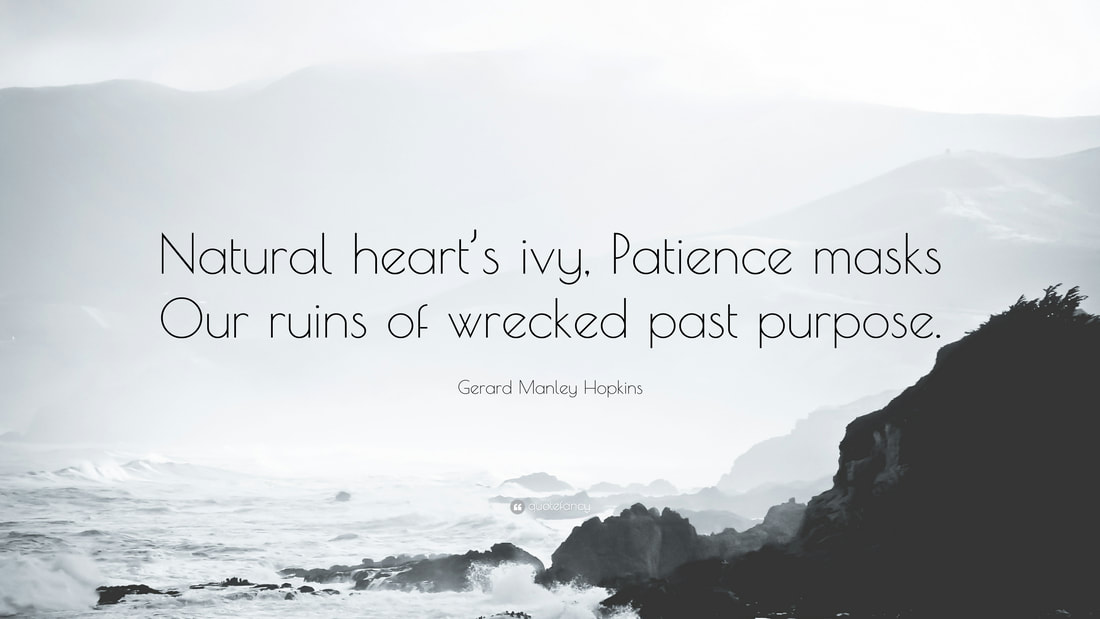
This morning we heard a little cluster of three parables – and a dodgy interpretation of one of them – did you spot them all? The wheat and the weeds, the mustard seed and the woman with the yeast. Sometimes they are known as parables of growth, especially as they follow on in Matthew’s version from the parable of the sower. But it seemed to me this week that we could call them ‘parables of patience’ – and as such very apt for our current situation, where the spread of COVID seems to be asking again and again for patience...
For indeed in life, as well as in the text of supposedly holy scripture, it is not always apparent what is what. I am sometimes reminded powerfully of TS Eliot’s words in the Four Quartets, where looking back on life from the perspective of old age he talks about ‘the awareness of things ill done or done to others’ harm that once you took for exercise of virtue” (Little Gidding II 4). The same perception could of course be put more positively, as we realise the good in some things that we previously believed harmful. As religious people we can be only too quick to reach for clear and simple judgments – as Matthew did in interpreting the parable of the wheat and the weeds. But interpretation whether of life or of scripture that is helpful, life-giving and not death-dealing requires time and patience.
These are parables of patience. Stories that invite us to trust in a God who quietly and humbly works for our growth and does not fuss too much about the mistakes along the way – for some of them may turn out to be the most valuable fruit of all. Many in our world today are longing to ‘snap back’, to return to the way things were, and to be free of this tiny, lethal virus. This is wholly understandable, but it seems as though again and again on this journey we are being encouraged to slow down; to exercise patience; to discover what it is that we are being invited to learn and to change in order that we and our planet may thrive.
Now I find patience very difficult as I am sure do many of you. The poet Gerard Manly Hopkins writes ‘Patience, hard thing’ – and I commend his sonnet to you (copied below). The word shares a root with the verb to ‘suffer or allow’ that comes into English as our word ‘passion’, as in the ‘passion’ or suffering of Christ. Patience involves letting go and trusting to the action of God. It is about a surrender of control that most of us find uncomfortable and difficult. Yet in that surrender growth happens, and the possibility of ‘another parable’. So, let us seek the ways of patient growth and let us trust in God the great maker of parables to continue their creative work within and beyond us. Amen.
by Penny Jones, Sunday 19 July 2020
‘Patience, hard thing! The hard thing but to pray’
PATIENCE, hard thing! The hard thing but to pray,
But bid for, Patience is! Patience who asks
Wants war, wants wounds, weary his times, his tasks,
To do without, take tosses, and obey.
Rare patience roots in these, and, these away,
Nowhere. Natural heart’s ivy, Patience masks
Our ruins of wrecked past purpose. There she basks
Purple eyes and seas of liquid leaves all day.
We hear our hearts grate on themselves: it kills
To bruise them dearer. Yet the rebellious wills
Of us we do bid God bend to him even so.
And where is he who more and more distils
Delicious kindness? – He is patient. Patience fills
His crisp combs, and that comes those ways we know.
(Gerard Manley Hopkins (1844-89). Poems. 1918)
 RSS Feed
RSS Feed